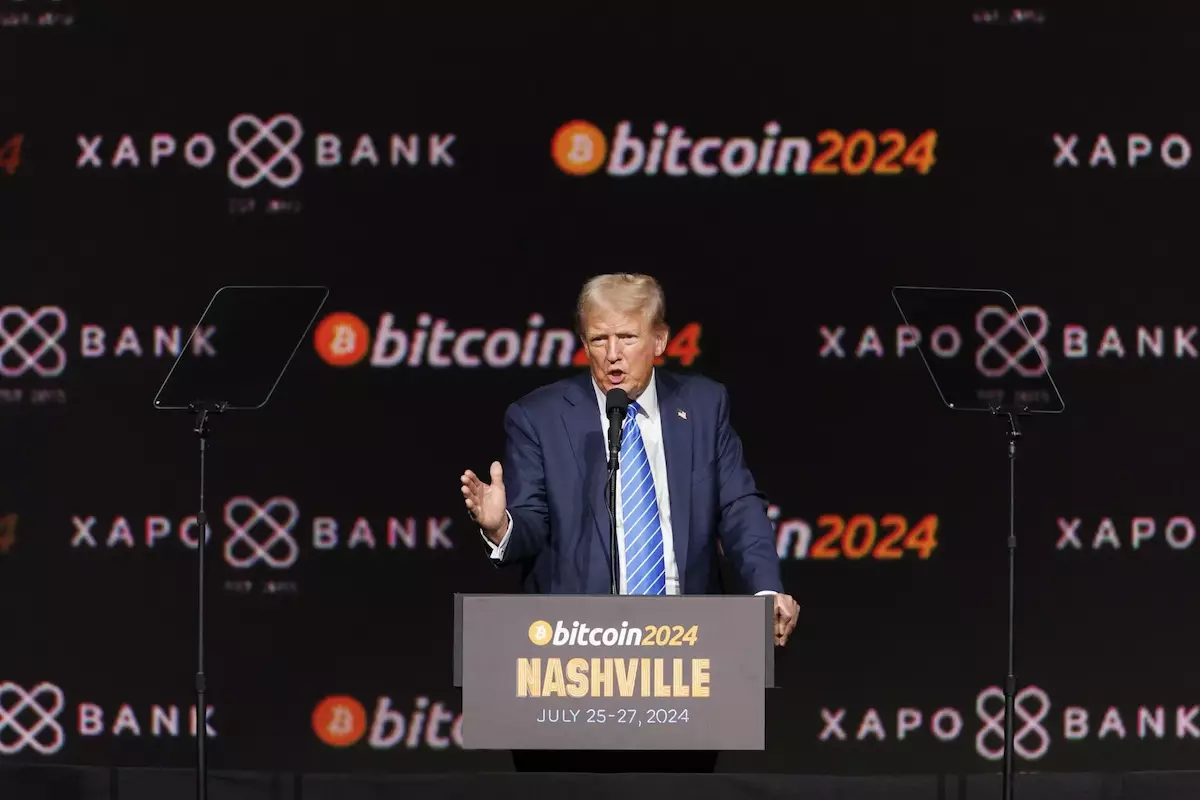The recent election of Donald Trump has reignited discussions across multiple sectors, including the burgeoning world of Web3. This futuristic approach to the internet—encompassing decentralized applications, blockchain technology, and digital ownership—has captured the attention of innovators and investors alike. The implications of a Trump presidency on Web3 gaming, in particular, have the potential to reshape how this industry operates, influencing everything from regulatory practices to investment pipelines.
Historically, Trump’s views on cryptocurrency were skeptical at best. In 2021, he labeled Bitcoin as a “scam,” expressing concerns over its impact on the US dollar and overall financial stability. However, as his administration moves towards embracing digital assets, a noticeable pivot in his perspective seems to be underway. This transition signals a willingness to welcome blockchain-integrated solutions and support a crypto-friendly environment that can foster innovation and growth within the gaming sector, which thrives on community engagement and digital ownership.
One of the major hurdles for Web3 gaming has been regulatory uncertainty. With Trump’s administration, there appears to be an opportunity for a more supportive approach towards legislation around blockchain technology. As the gaming industry leans heavily on tokenized economies reliant on cryptocurrencies, a relaxation of regulatory restrictions can spur creativity and operational freedom for developers and gamers alike.
Historically, the cryptocurrency market has been highly volatile, exhibiting significant growth and subsequent corrections. During Trump’s first term, Bitcoin experienced dramatic fluctuations in value, peaking at nearly $20,000 in 2017, followed by substantial declines and recoveries. This pattern underscores the importance of stable regulation. A clearer regulatory environment could enhance the legitimacy of Web3 gaming’s in-game assets, thereby broadening its appeal to mainstream audiences and reducing the fears associated with investing in or participating in these platforms.
The Securities and Exchange Commission (SEC), led by Gary Gensler at present, has often been perceived as an obstacle to the expansion of cryptocurrency-based platforms. Trump’s commitment to appointing a more crypto-friendly SEC chair may prove transformative for Web3 gaming. An administration that prioritizes cooperation with the crypto industry could foster a climate conducive to investment, encouraging traditional gaming companies to explore collaborations with blockchain developers.
Such a shift could remove hefty regulatory burdens associated with token issuance and trading, critically enhancing operations for Web3 gaming companies. A pro-crypto SEC will attract institutional investors, legitimizing in-game assets and pushing Web3 projects into the limelight. As capital flow into this sector improves, the potential for innovation and decentralized gaming experiences could burgeon, making it easier for developers to experiment and users to engage.
The Global Ripple Effect
The impact of the United States’ crypto policy extends well beyond its borders. Historically, other countries have often followed the US’s lead in shaping their own regulations concerning digital assets. Therefore, a streamlined approach to blockchain tech could position the US as a global leader in digital innovation. This may cultivate an environment ripe for international collaborations amidst Web3 gaming sectors, creating new avenues for investment and igniting a competitive spirit among nations.
Moreover, Trump’s revived support could signal traditional gaming studios to integrate blockchain technology into their ecosystems, magnifying the overall gaming landscape. By establishing partnerships between veteran gaming companies and emerging decentralized platforms, Web3 gaming could capture a more significant share of the gaming experience, potentially drawing millions of conventional gamers into the blockchain realm.
Should Trump’s administration maintain its pro-crypto trajectory, the coming years could herald unprecedented growth for Web3 gaming. Investors may witness an influx of capital directed towards this segment as venture funding proliferates, allowing for experimentation and innovation. Should regulatory frameworks become more favorable, we could see an explosion of decentralized games that prioritize user ownership and gaming economies.
Trump’s potential return to the White House could catalyze a transformative era for Web3 gaming. Through a combination of favorable regulations and institutional support, this next chapter could not only uplift the gaming industry but also redefine the nature of digital ownership and community engagement. As the landscape continues to evolve, stakeholders within both the crypto and gaming industries must be prepared to adapt to the changes ahead, all while fostering an environment that champions innovation.



Leave a Reply